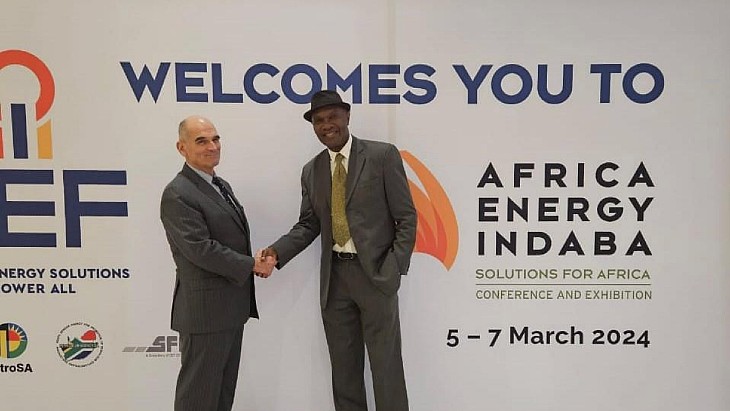The African Nuclear Energy Funding Initiative agreement will see DeepGeo introduced to African financial institutions and gain enhanced access to African decision-makers, while the African Commission on Nuclear Energy (AFCONE) "will benefit from a portion of the future proceeds (from any deep geological repository) and will immediately start work on establishing a template for regional nuclear governance that will facilitate nuclear energy deployment and the use of shared fuel-cycle facilities across the continent".
The provision of deep geological repositories for the disposal of high-level radioactive waste has been seen as a way of smoothing the path to new nuclear, but as DeepGeo says: "Until now few countries have been willing to host these facilities and previous initiatives have failed to gain the necessary public acceptance." The US-based company says it is working with "several African governments that have expressed potential willingness to host such facilities".
The partnership agreement aims to support the development of African financial institutions and their ability to invest in nuclear energy projects and "the goal is to eventually achieve nuclear autonomy for Africa, supporting regional nuclear fuel-cycle facilities, research and medical facilities and a domestic supply chain".
AFCONE Executive Secretary Enobot Agboraw said the agreement "offers the chance for African nations to leapfrog the established nuclear status quo, to collaborate as equal partners, and to take the development of nuclear power in Africa into their own hands".
DeepGeo President Link Murray said: "We are incredibly grateful and humbled to be able to support AFCONE in its historic mission to bring affordable, clean nuclear energy to Africa. We are honoured to be invited to participate in AFCONE's vision of peace, power, prosperity."
The agreement includes an example of possible financing, suggesting that a "conservative" estimate of an annual intake of 2000 tonnes of used nuclear fuel, priced at USD1 million per tonne, could generate annual income of USD2 billion, facilitating a 1% royalty payment to AFCONE of USD20 million, an investment of 20% of annual revenue - USD400 million - into a DeepGeo Trust for an African Nuclear Bank and a similar annual amount to a trust for general African Economic Development and "a one time equity grant to AFCONE of 5% of DeepGeo's African subsidiaries, made upon customer cumulative intake of 4000 tonnes would provide endowment capital to AFCONE".
The agreement also states that the parties will "encourage African newcomer/embarking countries to develop their nuclear power programmes using a multilateral approach ... which would entail common regulatory frameworks, joint development of infrastructure issues and sustainability requirements, capacity development, joint ownership and joint operation. This will reduce financial risk, facilitate financing, reduce political and proliferation risks, and expedite the completion of the projects. The Parties will promote public awareness, capacity building, community and stakeholder engagement, realising that obtaining a social licence is necessary for the successful implementation of nuclear projects."
The first phase of the plan is to: establish a taskforce of leading global regulators and legal experts to work to develop a regionally harmonised framework for nuclear governance and regulation; begin a project to harmonise regulations for the back-end of the fuel cycle and to create a joint team within 30 days to undertake outreach to potential customers and funders "with the goal that, within a year's time, it would enable DeepGeo to provide capital in support of building African nuclear energy infrastructure".
The African Union established AFCONE in November 2010, following the entry into force of the African Nuclear-Weapon-Free Zone Treaty (The Treaty of Pelindaba) in July 2009, which required the parties to establish a commission for the purpose of ensuring states' compliance with their treaty obligations and promoting peaceful nuclear cooperation, both regionally and internationally. The headquarters of AFCONE is in Pretoria, South Africa. AFCONE is financed by States Parties assessed contributions, as well as extrabudgetary funding.







_97013.jpg)
_51413.jpg)






